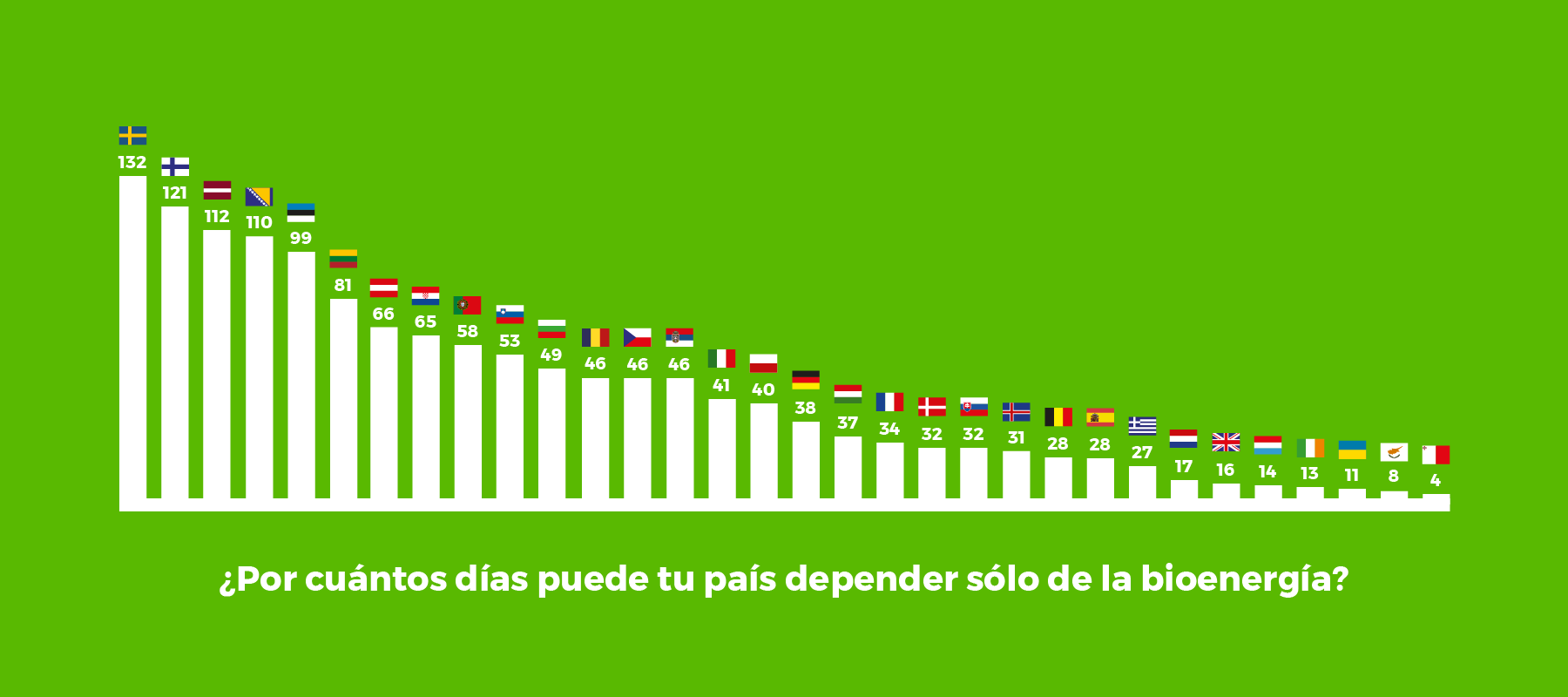The biomass can meet all the energy demand of Spain of the 3 al 31 de December. The country, which has great potential, could advance the date to November's 25 if the stubbles (olive pruning, vine shoots and bushes) are used, which are not used now.
Next Sunday, December 3, the 'Day of Bioenergy in Spain' is celebrated, coinciding with the date from which the energy demand can be met exclusively with biomass until the end of the year.
Spain is self-sufficient thanks to the biomass during 28 days this year, some data that place the country in the 23 position of the European ranking (along with Belgium), far from Sweden, with 132 days.
The president of the Spanish Association of Energy Valorization of Biomass, AVEBIOM, Javier Díaz, appreciates that being self-sufficient for 28 days also means being "an energy independent country for almost a month, because it is a renewable and own energy source, which does not depends on the importation of oil or gas "
In addition, Spain has a great potential for resources. Currently, only with what is burned and not used in stubble (olive pruning or branches) and forest fires in summer (bushes) could reduce the consumption of fossil fuels and reduce energy dependence.
If these resources were used, the Day of Bioenergy in Spain would be ahead of the 25 in November, as in France and very close to the European average (the Day of Bioenergy in Europe in 2017 has been the November 21).
According to the Enerbiocrub project and MAPAMA data, it would be possible to use almost 516.000 equivalent tons of oil (TEPs) of biomass from sustainably managed thickets, equivalent to 1,2 million tons of dry base each year.
In addition, there could be 625.600 TEPs of olive tree pruning (equivalent to 1,46 million tons on a dry basis per year), 290.200 TEPs (equivalent to 675.000 tons on a dry basis per year) of shoots for energy use, according to data from the Biomasud Plus projects.
Sources such as EuroPruning and S2Biom point out that fruit pruning (sweet, dry and citrus) can add up to 500.000 TEPs (equivalent to 1,3 million tons on dry basis).
These quantities, which each year can be generated in Spain, could be used for energy purposes and thus avoid emissions that are detrimental to the air quality caused by burning.
Some data that show the "fundamental role" played by biomass in the transition to renewable energy. "Bioenergy is the most important source of renewable energy in Europe, which is close to surpassing coal to become the first source of autochthonous energy," said Díaz.
Biomass is used mostly in residential heating and in industries, and to a lesser extent electricity and biofuels.
